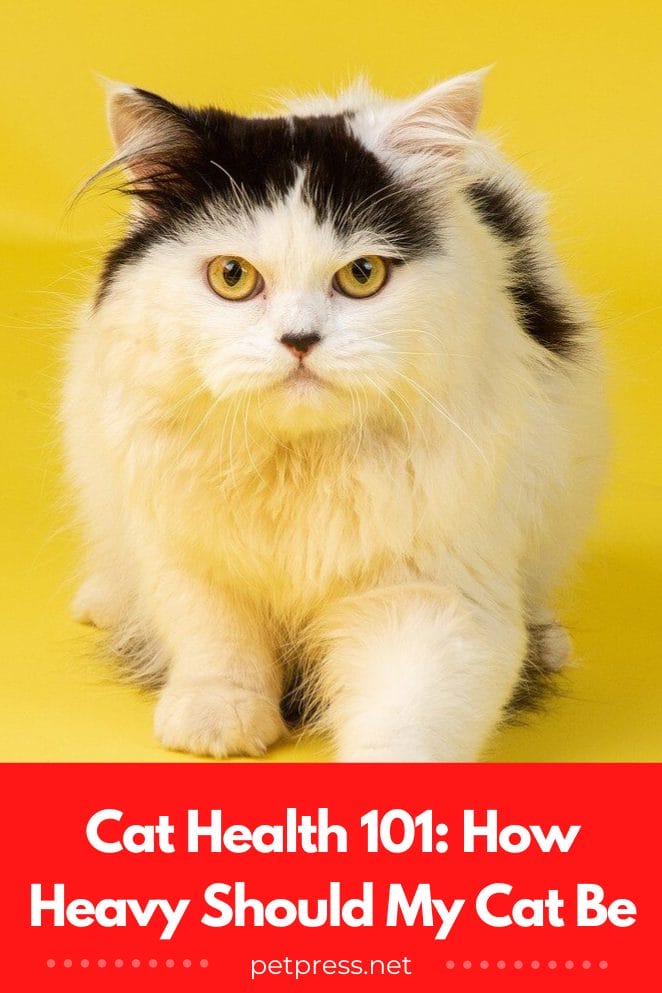
Cats are often thought of as being low-maintenance pets, but that doesn’t mean they don’t need to be kept healthy. A big part of keeping your cat healthy is making sure they stay at a healthy weight. So if you ask yourself “How heavy should my cat be” then this article is for you!
Carrying around extra weight can put a lot of strain on a cat’s body and can lead to serious health problems like diabetes, joint pain, and respiratory issues.
So, how heavy should a cat be?
There is no one-size-fits-all answer to this question, as the ideal weight for your cat will depend on a number of factors, including their age, breed, and activity level.
However, there are some general guidelines you can follow to help you determine if your cat is at a healthy weight.
What is a healthy weight for a cat?
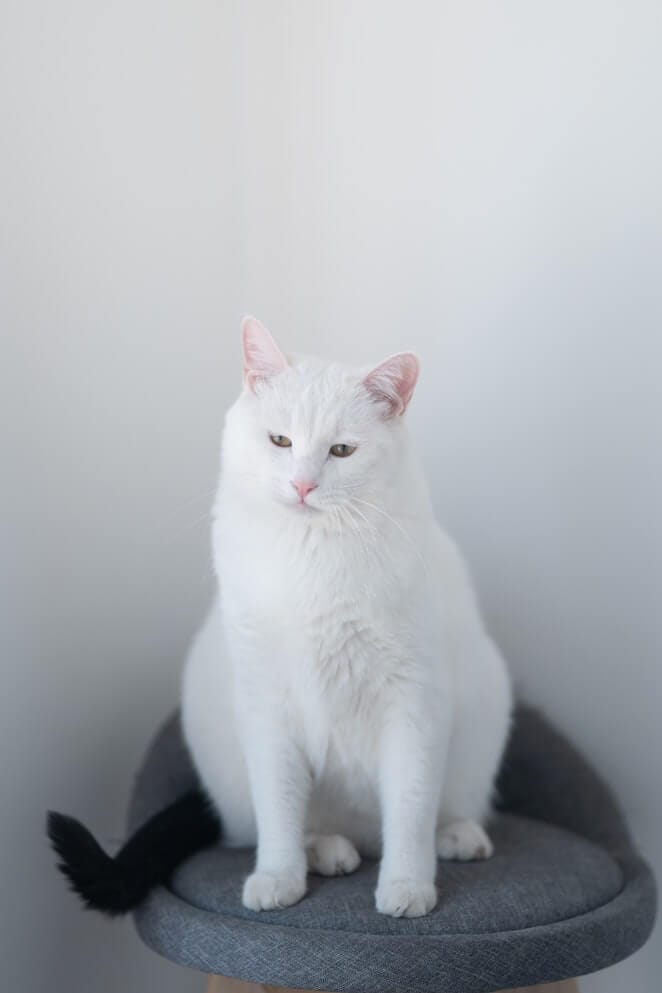
There is no definitive answer to this question since every cat is different. However, there are general guidelines you can follow to help ensure your cat remains at a healthy weight.
For example, cats typically should consume around 20 calories per pound of body weight each day. So, if your cat weighs 10 pounds, they should be eating around 200 calories per day. Of course, this will vary depending on factors such as age, activity level, and metabolism.
The ideal weight for a cat depends on many factors, including the cat’s age, breed, and body type. A healthy weight for an adult cat is typically between 8 and 10 pounds.
However, some breeds of cats (such as Siamese) are naturally slender and may weigh as little as 6 pounds. Conversely, some larger cat breeds (such as Maine Coons) can weigh up to 15 pounds or more.
Age is also a factor to consider when determining a healthy weight for your cat. Kittens and young cats generally have higher energy needs and may be heavier than their adult counterparts. Senior cats tend to have lower energy needs and may gradually lose weight over time.
Finally, remember that all cats are different and what may be a healthy weight for one may not be for another. Therefore, it’s always best to consult with your veterinarian if you have any concerns about your cat’s weight.
How can I tell if my cat is underweight?
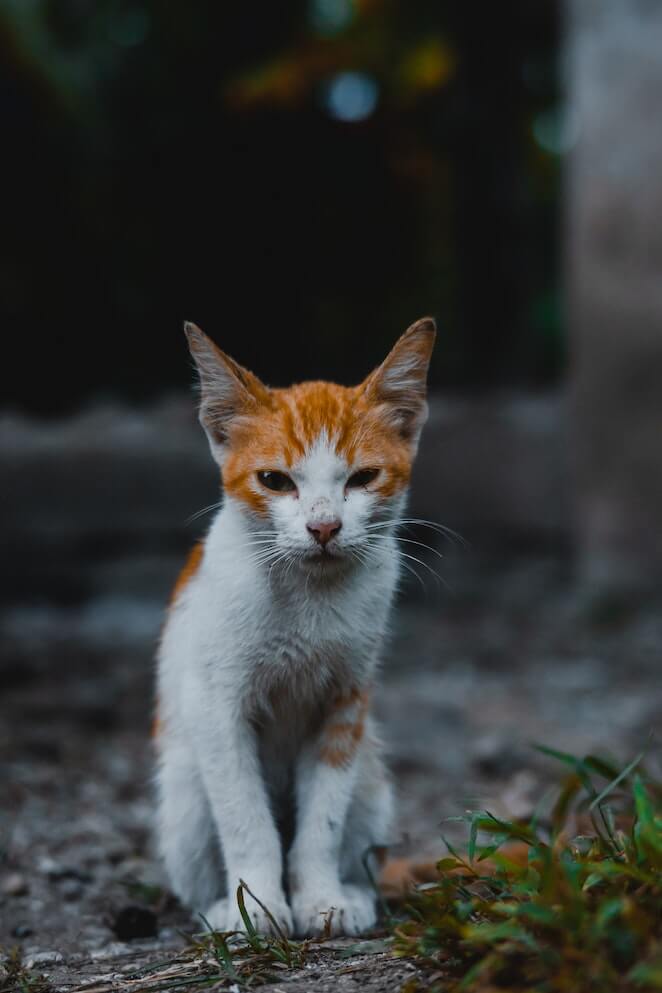
If you’re wondering if your cat is underweight, there are a few things you can look for. First, check to see if your cat’s ribs are visible. You should be able to feel them, but they shouldn’t be protruding. If they are, your cat is probably underweight.
Another thing to look for is whether or not your cat has a waist. When viewed from above, you should be able to see a slight indentation in between the hips and rib cage. If you don’t see this, it could be an indication that your cat is carrying too much weight.
Finally, take a look at your cat’s coat. If it looks dull and lifeless, it could be a sign of poor nutrition. A healthy cat’s coat should be shiny and full.
How can I tell if my cat is overweight?
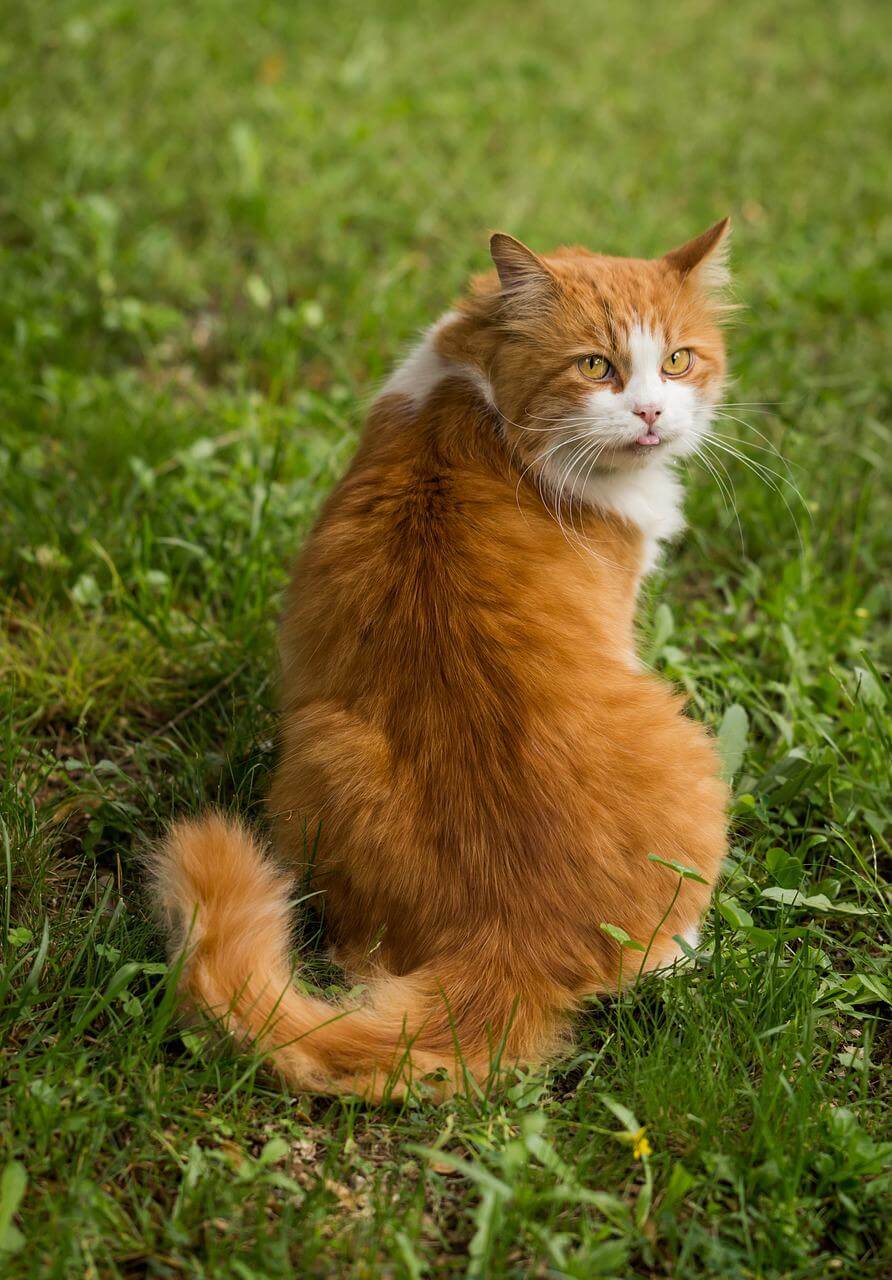
There are a few different ways to tell. First, take a look at your cat from above. You should be able to see their waistline and their ribs shouldn’t be hidden behind a layer of fat.
Another way to check is to feel your cat’s body. You should be able to feel their ribs without having to press too hard. If you can’t feel their ribs or if you have to press pretty hard to find them, that’s a sign that your cat is carrying around too much weight.
Finally, take a look at your cat’s coat. If it appears greasy or oily, that’s a sign that they may be carrying too much weight. A healthy cat’s coat should be shiny and free of excess oil.
If you’re concerned that your cat may be overweight, the best thing to do is to consult with your veterinarian. They can help you determine if your cat is at a healthy weight and offer guidance on how to help them reach their ideal weight.
What are the health risks of being overweight?
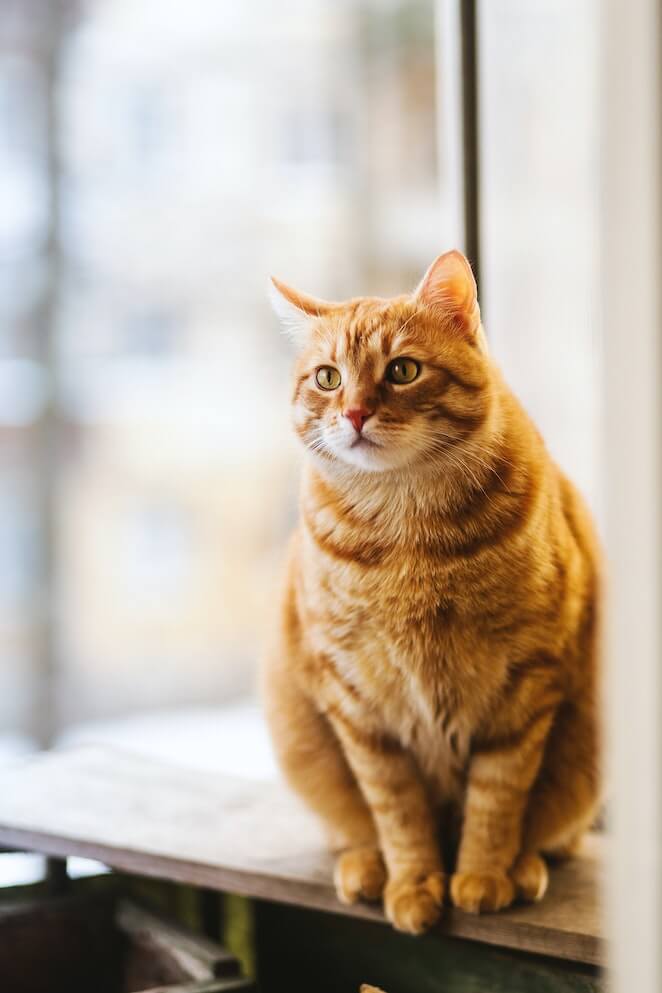
As mentioned earlier, carrying around extra weight can put a lot of strain on a cat’s body and can lead to serious health problems like diabetes, joint pain, and respiratory issues.
In fact, being even a few pounds overweight can shorten a cat’s life by as much as two years.
That’s why it’s so important to ensure your cat remains at a healthy weight. Not only will it help them live a longer and healthier life, but it will also make them feel better and give them more energy to play and enjoy their time with you.
Conclusion
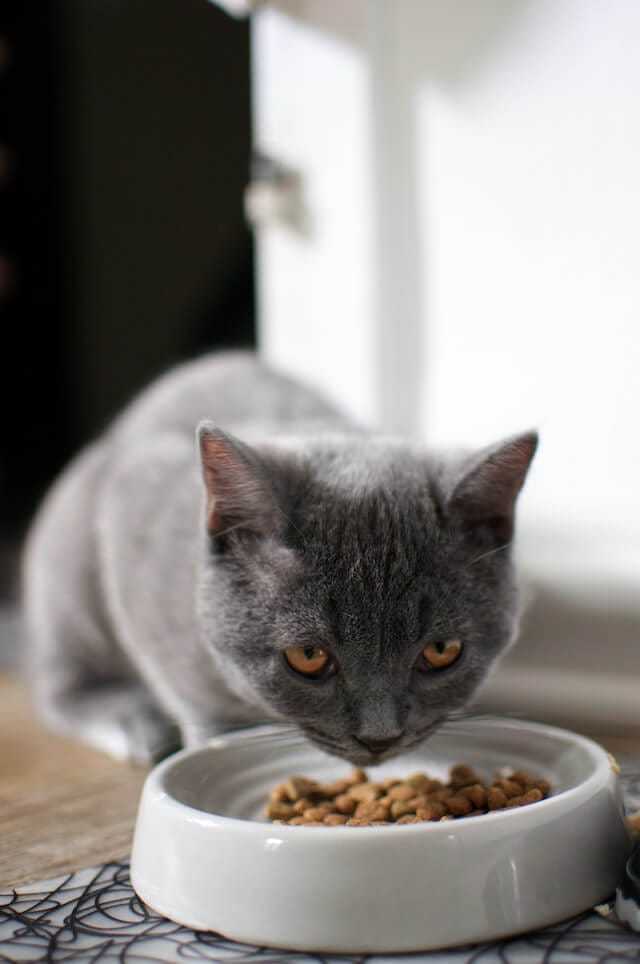
You can maintain your cat’s health by taking care of their nutrition. Look for foods that are high in protein and fiber and low in calories. You may also want to consider feeding your cat smaller meals more often throughout the day.
Encourage your cat to be active. Provide them with toys and games that encourage them to move around. Take them on walks or play with them yourself. The more active they are, the more calories they will burn off.
Finally, monitor your cat’s weight regularly. This way you can catch any weight gain early and take steps to prevent it.
By following these tips, you can help your cat maintain a healthy weight and live a long and happy life.
- 7 Dog Breeds With Webbed Feet And Why Do They Have Them - July 19, 2023
- 10 Best Fish For Small Tanks That Make Perfect Pets - July 18, 2023
- How to Breed Guinea Pigs: A Detailed Guide - July 17, 2023


GIPHY App Key not set. Please check settings